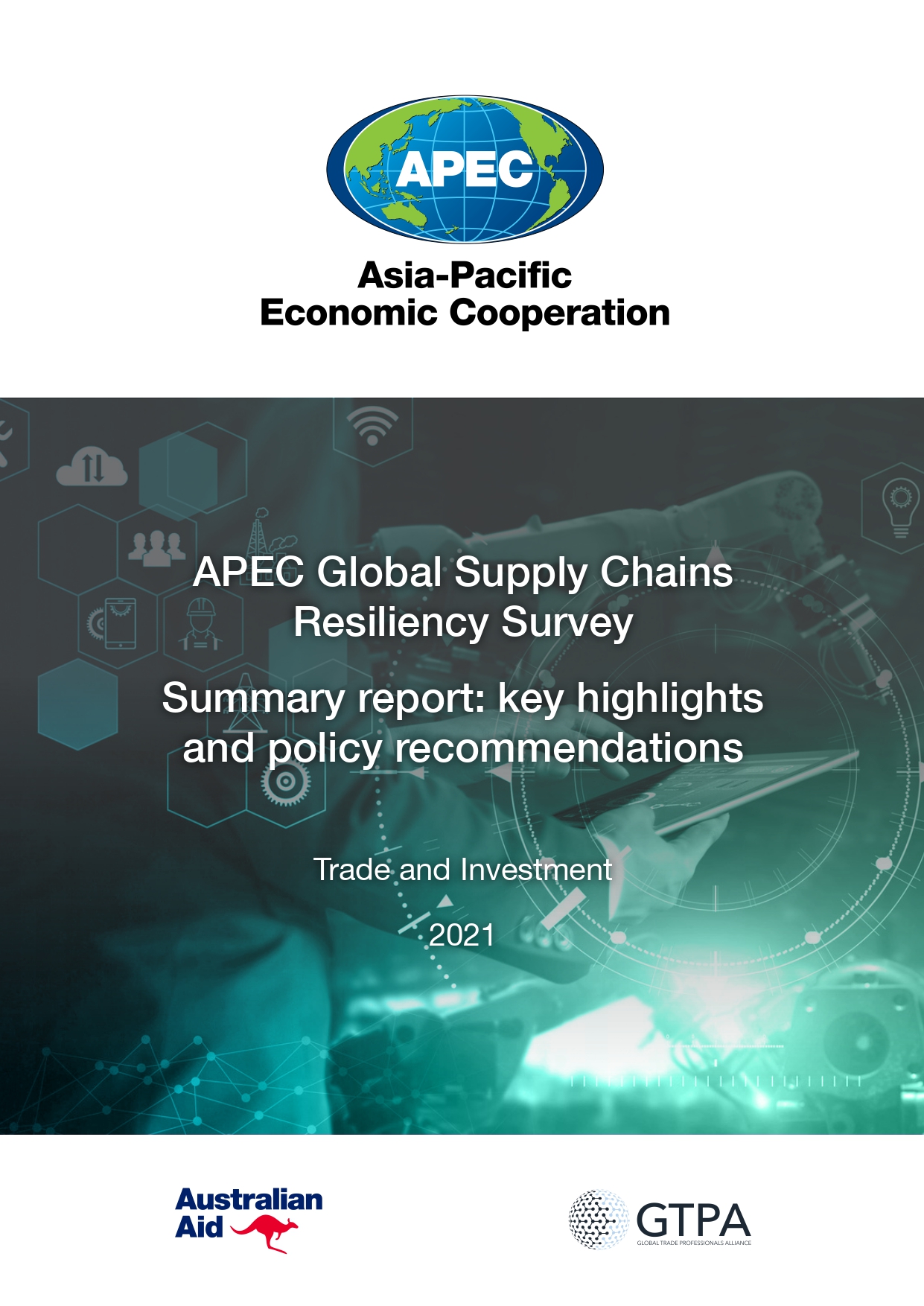APEC Global Supply Chains Large Business Survey report

Driven by disruptions such as COVID-19 and the resulting worldwide economic slowdown, GVCs – and broader supply chains – are facing pressures for rapid transformation.
In the face of this transformation, and as we look toward economic recovery from the current crisis, now is the ideal time to better pair the needs of businesses in value and supply chains with government policies and recovery programs.
The Australian Government recently funded a survey into global supply chains to better understand the needs of large businesses after the COVID-19 pandemic.
Some of the survey report highlights:
A high percentage of large businesses have offshore branches, offshore manufacturing operations or offshore services operations.
Only a very small number of large businesses have a woman as the head of their business operations. A majority (two thirds) of large businesses have fewer than 50% representation of women at the executive level. Almost a quarter have no women as executives at all.
Almost a third of the responding large businesses estimate that they sell goods and services to more than 10 other large businesses as inputs into their global supply chains, while a third of responding large businesses estimate that they receive goods and services as inputs into their global supply chain from more than 10 SMEs. It was notable, however, how many businesses had no idea how many large or SME businesses were in their supply chains. This supports the perception that large businesses have little transparency into their supply chains, and often have little knowledge of the SMEs that are critical providers of goods and services within their supply chains.
Several issues control the extent to which large businesses source from SMEs:
Key attributes of supplier performance include the ability of SMEs to meet quality requirements, conform to due diligence risk requirements, financial health, ability to meet cost and price targets, and technological capability.
Other sourcing considerations include concerns over business ethics and legal considerations, available capacity, and delivery times/costs (frequency, lead times).
A number of responding businesses reported that their risk and due diligence requirements for SME sourcing have increased as a result of COVID-19. This could be the result of a quarter of large businesses experiencing delivery delays/failures followed by reduced customer demand and production facility closures because of COVID-19.
The survey was supported by the Department of Foreign Affairs and Trade (DFAT) of the Australian Government and implemented online by GTPA and North Carolina State University (NCSU) Supply Chain Resource Cooperative.